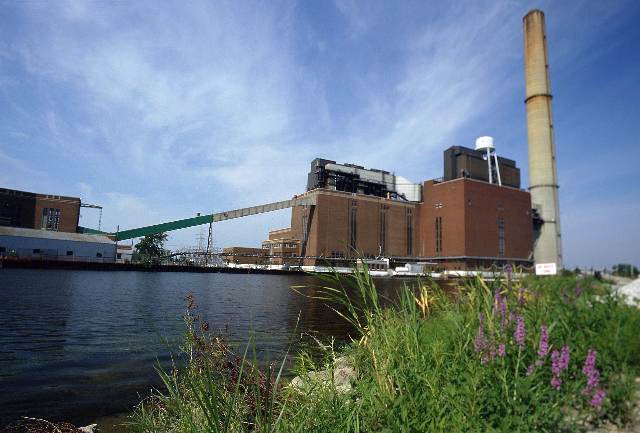
The state of Michigan has for years turned to coal for about half of its power generation, according to the U.S. Energy Information Administration. Now, more than two dozen of the state’s coal plants are slated for retirement in the next five years.
Aging plants and stricter emissions regulations are said to have prompted the closures, the planning of which Consumers Energy and DTE Energy say predates the August release of the final Clean Power Plan.
Michigan coal-fired units slated for retirement:
- DTE Energy’s Harbor Beach (121 MW), 1 unit in
2015
- DTE’s Trenton Channel (240 MW), 2 units in 2016
- Consumers Energy’s B.C. Cobb (312 MW), 2 units in
2016
- Consumers Energy’s
J.C. Weadock (312 MW), 2 units in 2016
- Consumers Energy’s J.R. Whiting (345 MW), 3 units
in 2016
- Michigan South Central Power Agency’s Endicott
(55 MW), 1 unit in 2016
- Holland Board of Public Works’ DeYoung (63 MW), 3
units in 2017
- Lansing Baord of Water and Light’s Eckert (335
MW), 6 units in 2018
- Wisconsin Electric’s
Presque Isle (450 MW), 5 units in 2020
DTE Energy expects only 15 coal-fired units to remain in operation after April of 2016, and while the plants’ retirements are expected to significantly cut the state’s carbon dioxide (CO2) emissions, the utility says the Clean Power Plan will eventually force the shuttering of nearly all of its coal plants.
“There is no piece of control equipment we can put on to meet carbon rules under the Clean Power Plan,” Skiles Boyd, DTE Energy’s vice president of environmental management and resources, tells the Detroit Free Press.
By 2030, Boyd says Monroe Power Plant will likely be DTE Energy’s only remaining coal plant in operation.
The utility expects to replace some of its lost coal-fired capacity with the purchase of natural gas plants in Carson City and East China Township.
Consumers Energy expects to invest about $2 billion to upgrade five of its newer plants, ensuring compliance with emissions regulations, but seven of its older coal-fired plants will have retired by April 2016.
The state’s largest utility expects to make up some of the lost capacity through the purchase of the former DPC Juniper natural gas plant, while the remaining capacity is replaced by importing power from the regional grid and turning to renewables like wind and solar.
Copyright © 2015: PennWell Corporation Subscribe to http://www.power-eng.com